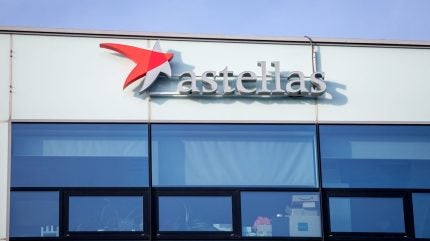China NMPA accepts Astellas’ sBLA for urothelial cancer treatment
29 Mar 2024
Clinical ResultPhase 3Drug ApprovalADC

Preview
Source: Pharmaceutical Technology
Astellas Pharma’s enfortumab vedotin is a Nectin-4- targeted antibody-drug conjugate. Credit: BalkansCat / Shutterstock.com.
The Center for Drug Evaluation (CDE) of the China National Medical Products Administration (NMPA) has accepted Astellas Pharma’s supplemental biologics license application (sBLA) for enfortumab vedotin plus KEYTRUDA (pembrolizumab) for urothelial cancer.
This combination therapy is aimed at treating adult patients with previously untreated locally advanced or metastatic urothelial cancer (la/mUC).
Enfortumab vedotin is a targeted antibody-drug conjugate (ADC) directed against the Nectin-4 protein.
The potential approval for the combination regimen could revolutionise the standard of care for first-line la/mUC, offering an alternative to the platinum-containing chemotherapy that is currently administered.
The sBLA is based on the data from the randomised, open-label, controlled Phase III EV-302 clinical trial, also known as KEYNOTE-A39.
See Also:
Arvinas gets grant for treatment of prostate cancer with specific compounds

Preview
Source: Pharmaceutical Technology
Chong Kun Dang Pharmaceutical gets grant for injectable composition of testosterone undecanoate for testosterone deficiency treatment

Preview
Source: Pharmaceutical Technology
This study compared enfortumab vedotin in combination with pembrolizumab to platinum-containing chemotherapy in 886 patients.
Overall survival (OS) and progression-free survival (PFS) were the trial’s primary outcomes.
Secondary endpoints included objective response rate (ORR), duration of response (DOR), and safety profiles.
The results demonstrated that the combination of enfortumab vedotin with pembrolizumab significantly improved OS and PFS, with meaningful clinical outcomes when compared to the standard chemotherapy regimen.
The safety profile of the combination therapy was in line with prior reports without any new safety concerns identified.
In addition to the CDE’s review, the NMPA is considering enfortumab vedotin as a treatment option for la/mUC patients who have previously undergone therapy with a PD-1/L1 inhibitorPD-1/L1 inhibitor and platinum-based chemotherapy.
Parallelly, the European Medicines Agency’s Committee for Medicinal Products for Human Use (CHMP) and Japan’s Ministry of Health, Labour and Welfare (MHLW) are also reviewing the combination regimen.
In December last year, the US Food and Drug Administration granted approval for this combination therapy.
Astellas Oncology Development head and senior vice-president Ahsan Arozullah said: “Locally advanced or metastatic urothelial cancer is a life-threatening condition in China with nearly half of those diagnosed succumbing to the disease.
“The CDE’s acceptance of our sBLA for enfortumab vedotin and pembrolizumab brings us one step closer to delivering a much-needed, innovative new treatment option for this patient population.”
For more details,please visit the original website
The content of the article does not represent any opinions of Synapse and its affiliated companies. If there is any copyright infringement or error, please contact us, and we will deal with it within 24 hours.
Hot reports
Get started for free today!
Accelerate Strategic R&D decision making with Synapse, PatSnap’s AI-powered Connected Innovation Intelligence Platform Built for Life Sciences Professionals.
Start your data trial now!
Synapse data is also accessible to external entities via APIs or data packages. Leverages most recent intelligence information, enabling fullest potential.





